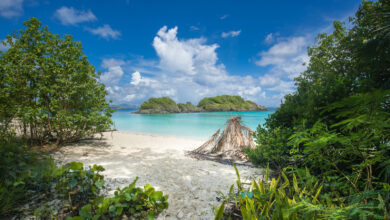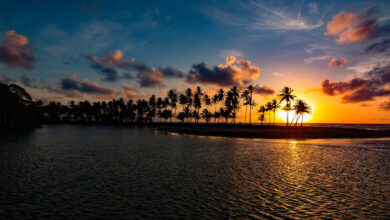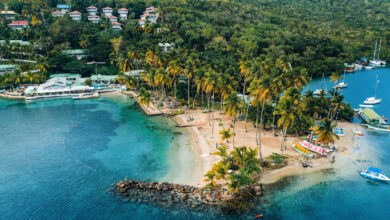The Arawak and Carib people were the first to inhabit the Caribbean islands. They were skilled farmers, fishermen, and hunters, and their settlements were characterized by intricate social structures and religious beliefs. However, their way of life was disrupted by the arrival of Spanish conquistadors in the late 15th century. The Spanish claimed the islands for themselves and began to exploit the native population, enslaving them and forcing them to work in mines and on plantations.
The English, French, Dutch, and Portuguese followed the Spanish in colonizing the Caribbean, each leaving their own unique imprint on the region’s history and culture. The English established colonies in Jamaica, Barbados, and the Bahamas, while the French took control of Haiti and Martinique. The Dutch established colonies in Suriname and the Lesser Antilles, while the Portuguese controlled parts of Brazil and the Cape Verde Islands. The resulting mix of cultures and traditions has led to a colorful and diverse Caribbean society.
One of the most significant events in Caribbean history was the slave trade. From the 16th to the 19th century, millions of Africans were taken from their homes and brought to the Caribbean to work as slaves on sugar and tobacco plantations. This period had a profound impact on the region’s culture, as African traditions and customs blended with those of the Europeans and the indigenous populations. Today, the Caribbean is known for its rich music, dance, and folklore, many of which are rooted in traditional African practices.
The Caribbean is also home to a unique cuisine that reflects the region’s history and culture. The food is a blend of African, European, and indigenous influences, resulting in dishes that are both flavorful and diverse. From jerk chicken in Jamaica to roti in Trinidad and Tobago, Caribbean cuisine is a feast for the senses.
In addition to its history and culture, the Caribbean is also famous for its natural beauty. The turquoise waters, white-sand beaches, and lush vegetation make it a popular destination for tourists from around the world. However, it’s important to remember that the Caribbean has a complex history that is still being felt today. Many of the social, economic, and political issues that the region faces, such as poverty, crime, and corruption, can be traced back to its colonial past.
In conclusion, exploring the history and culture of the Caribbean can be a fascinating and rewarding experience. The region’s rich and diverse heritage is a testament to the resilience of its people, who have overcome centuries of exploitation and oppression to carve out a unique and vibrant society. Whether you’re interested in music, food, art, or history, the Caribbean has something to offer everyone.




